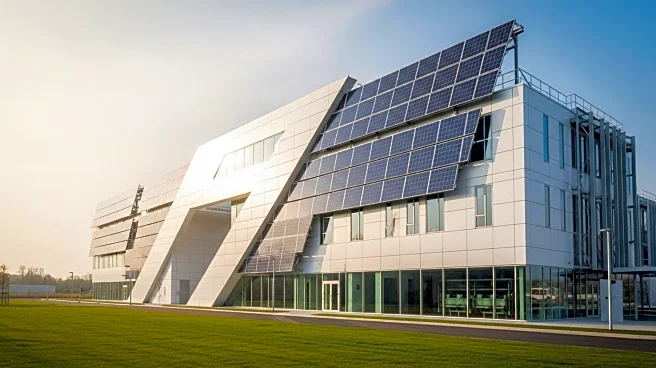What is the story about?
What's Happening?
Princeton Digital Group (PDG), a prominent data center provider in the Asia Pacific region, has announced a partnership with Flexidao and Tata Power Renewable Energy Limited (TPREL) to implement time-matched, carbon-free energy consumption at its 150MW MU1 data center in Mumbai. This initiative marks a significant step towards achieving 24/7 carbon-free operations, setting a new benchmark for clean energy tracking and transparency in India's data center sector. PDG is leveraging Flexidao's platform to match its energy consumption with renewable generation on an hourly basis, advancing its net zero commitments and supporting India's decarbonization goals.
Why It's Important?
The move by PDG to align its energy consumption with renewable sources is crucial in the context of growing energy demands and sustainability goals. By pioneering hourly matching of renewable energy consumption, PDG is setting a precedent for other data centers, potentially influencing industry standards and practices. This initiative not only supports environmental goals but also enhances PDG's operational reliability and transparency. The collaboration with TPREL and Flexidao demonstrates a scalable model for clean energy integration, which could be adopted by other sectors facing similar sustainability challenges.
What's Next?
PDG's initiative may prompt other data centers and industries to adopt similar renewable energy strategies, potentially leading to broader changes in energy consumption patterns. As PDG continues to develop its infrastructure for granular energy data management, it may explore further partnerships and technologies to enhance its sustainability efforts. The success of this project could influence policy discussions and encourage government incentives for renewable energy adoption in the data center industry.
Beyond the Headlines
The implementation of time-matched renewable energy consumption by PDG highlights the growing importance of transparency and accountability in corporate sustainability practices. This approach not only reduces carbon emissions but also improves local air quality, addressing broader environmental and public health concerns. The initiative may also drive innovation in energy management technologies, fostering advancements in clean energy solutions and data analytics.
















